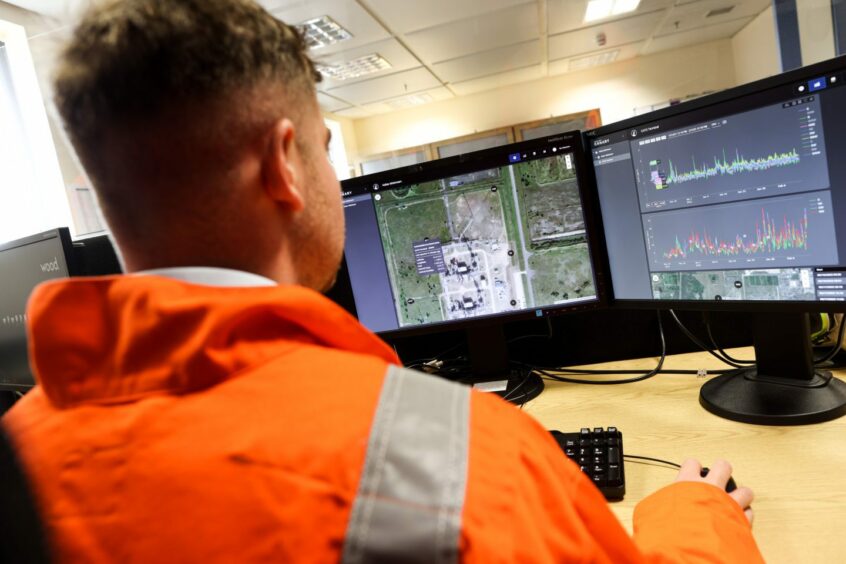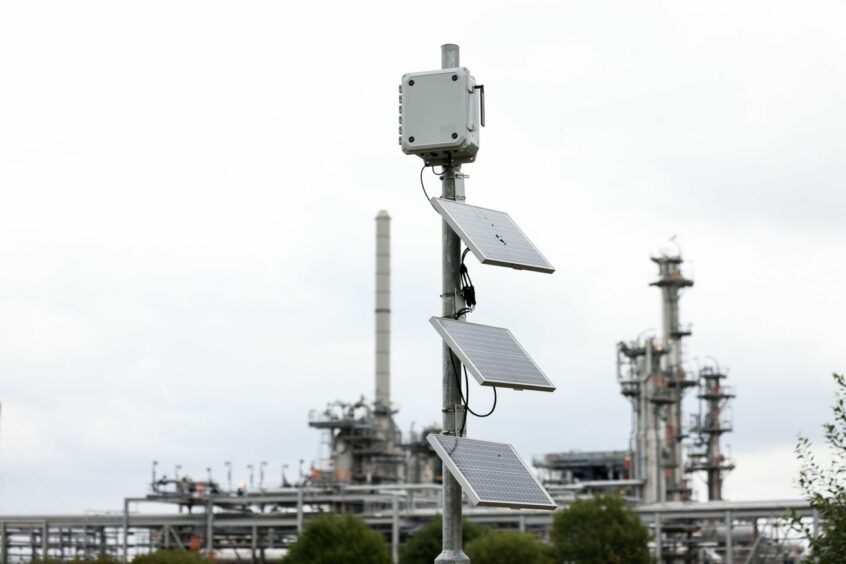
Kellas Midstream has adopted a pioneering new methane emissions monitoring system at its Teesside gas terminal, which sees the system deployed outside the US for the first time.
The UK midstream operator will use continuous emissions monitoring at its Teesside Central Area Transmission System (CATS) terminal, harnessing technology from Denver, Colorado-based ESG data analytics firm Project Canary.
Twelve “ultra-sensitive” Canary sensors were installed at multiple points around the terminal in December, enabling the operator to detect, monitor, and measure methane emissions at site level in real-time.
Kellas says the setup – capable of measuring at the level of 0.25 parts per million (ppm) – will enable it to better understand if and when there are methane emission events and map any trends to enable rapid intervention.
The partnership represents climate data analytics company first international system installation, having already grown rapidly in the US through its offering of measurement and environmental performance solutions.
Project Canary’s chief executive Chris Romer said Kellas was the “right partner” to make the move.
“We’ve spent the last four years providing U.S. companies with innovative emissions data to facilitate demonstrable environmental performance changes. With Kellas, we’ve found the right partner to take our commercialized climate-tech for high-performance emissions monitoring to Europe,” he said.
“North Sea gas production will play an essential role in Europe’s energy transition, and Kellas is leading the way to a lower-carbon future.”
Methane is one of the most potent greenhouse gases (GHGs) in the world’s atmosphere today, having 20 – 86 times the impact than that of carbon dioxide.
Globally, the oil and gas industry is the third-largest emitter of methane, after agriculture and waste, and action around reduction forms a major part of the sector’s efforts to reduce its environmental impact.
Indeed, action on methane is a core deliverable of the joint industry-government North Sea Transition Deal (NSTD), under which the offshore sector has committed to a 50% reduction in total methane emissions and a reduction in methane intensity.
BlackRock and GIC-backed Kellas owns and operates a portfolio of critical energy assets in the central and southern North Sea, including CATS, the Esmond Transportation System in Norfolk, and Humber Gathering System in East Yorkshire. All told, its infrastructure is responsible for transporting some 40% of the UK’s domestic gas production.
The company said the use of technology such as Project Canary would be key to its meeting demand responsibly.
“Kellas supports the North Sea Transition Deal’s commitment to decarbonisation. We must lead the way in reducing carbon intensity in our own operations,” said the group’s managing director Andy Hessell.
“We have achieved a 25% reduction in carbon intensity in our existing operations over the last few years and aim to make further significant reductions by the end of the year in 2024. Project Canary’s technology enables us to precisely measure our performance, drive improvement, and minimise the potential for methane emissions from the gas we transport for our domestic consumers.”
Recommended for you

 © Supplied by Kellas Midstream
© Supplied by Kellas Midstream